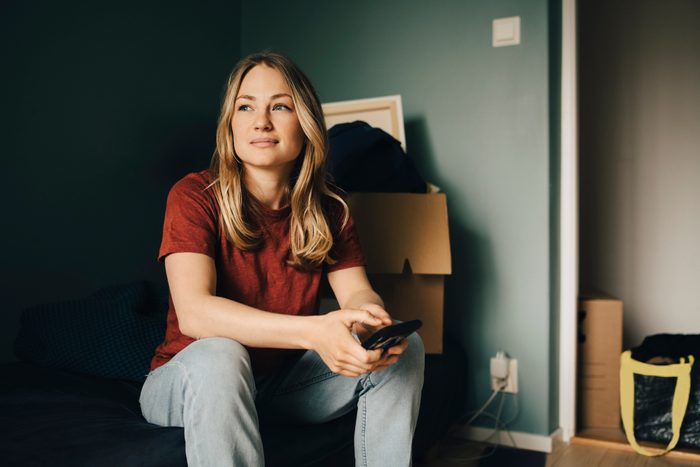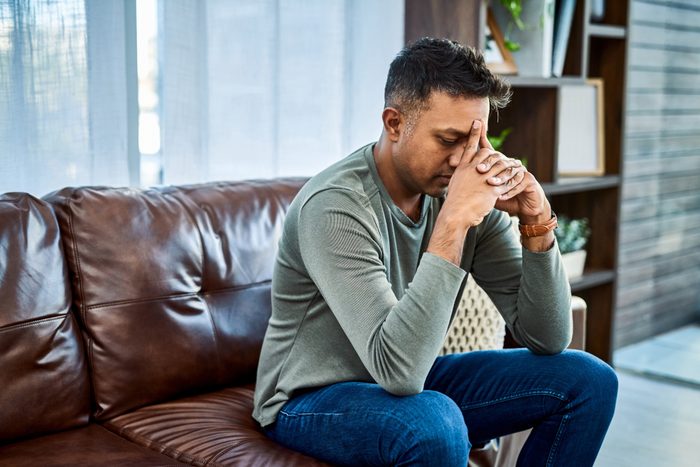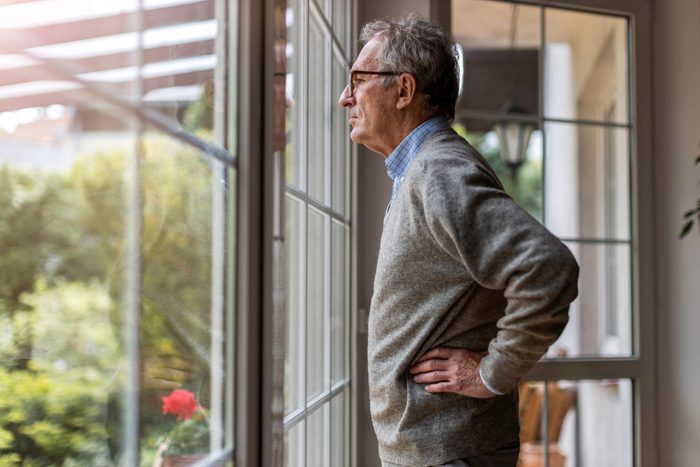
Anxiety is nature’s way of preparing us to handle difficult situations. That’s why occasional anxiety is no problem—it’s healthy, even. But when run-of-the-mill nerves become irrational, chronic, or overwhelming, an anxiety disorder may be at play.
Anxiety disorders are the most common type of mental health condition, according to research published in Dialogues in Clinical Neuroscience. An estimated 33.7% of the population experiences an anxiety disorder at some point in their lifetime.
Still, anxiety disorders can manifest in different ways, explains Joshua Estrin, PhD, a clinical therapist specializing in anxiety treatment. Some people experience generalized anxiety, or a persistent worry about everyday issues and situations. Others may develop what he calls more focused anxiety symptoms, like agoraphobia.
What Is Agoraphobia? Three Psychologists Explain Why It’s Suddenly So Common

What is agoraphobia?
Most adults struggling with agoraphobia follow one of two common patterns, explains Peggy Loo, PhD, a licensed psychologist and director of Manhattan Therapy Collective. “One is often an extreme worry that they cannot leave the situation they’re in by their own free will, getting stuck,” she says.
Others experience a disproportionate fear that something negative will occur while in a situation they have no control over—like having a panic attack or getting sick—and they won’t be able to get help or escape. “Sometimes agoraphobia may develop after a real-world negative experience you are worried about happening again, but sometimes the perceived threat alone is enough to create debilitating anxiety.”
An individual with agoraphobia will often avoid certain places and situations or even opt never to leave the house without company, Dr. Loo says. This avoidance behavior is one reason the condition gets confused with its cousin, social anxiety, which triggers an intense fear or anxiety related to social situations, particularly over being judged, embarrassed, or criticized by others.
Get The Healthy @Reader’s Digest newsletter to get the latest in health and wellness every day

What are the symptoms of agoraphobia?
Diagnostically, a person with agoraphobia has an intense fear response when they’re in (or sometimes just when they’re anticipating) at least two of the following situations:
- using public transportation
- being in open spaces
- being in enclosed spaces
- standing in lines or crowds
- being outside of the home alone
“Even the thought of being in a certain situation can cause someone to literally feel crippled, trapped, immobilized,” Estrin says.
Physical symptoms tend to show up following this abrupt surge of intense fear or discomfort, says Laurie Singer, LMFT, BCBA, a licensed psychotherapist. “They reach a peak within minutes and, typically, present four or more physical symptoms which can include [heart] palpitations, sweating, trembling or shaking, a shortness of breath, the feeling of being smothered or choked, chest pain, nausea or feeling dizzy and faint.”

How common is agoraphobia?
The National Institutes of Health estimates that 1.3% of US adults experience agoraphobia. But in reality, says Dr. Estrin, this rate could be much higher.
The Anxiety & Depression Association of America suggests that more than half of people with an anxiety disorder don’t seek treatment. And just like many mental health disorders, agoraphobia exists on a continuum—and there’s a huge range of severity.
“One person might have more mild agoraphobia, experiencing anxiety when they are in very large, crowded places such as a concert or conference for work,” says Tynessa Franks, PhD, a clinical psychologist. These people might get some symptoms of agoraphobia in these specific situations but are able to work around it in their daily lives by sticking to activities within their comfort zone. Until it causes a disruption in their life, these people may not address the underlying agoraphobia.
“Another person might be toward the more severe end of the scale—they might be almost completely homebound,” Dr. Franks says. “They will not leave home at all because of their anxiety about being in a situation where they cannot easily escape or get help.”
She adds that some people describe their fears as constant, while others say theirs are triggered by specific events or demands.
7 Essentials Fellow Shoppers Say You Need For a Cozy Mental Health Night at Home

Can agoraphobia develop suddenly?
Someone may be aware they’re experiencing symptoms of agoraphobia, Singer says. But like most forms of anxiety, it’s not always so black and white. “Those who are experiencing situational agoraphobia may opt not to engage in activities or events that create anxious feelings—[using] an out of sight, out of mind approach,” she says. Additionally, someone may not know why a panic attack occurs, yet do understand what situations can trigger it. While it can be tempting simply to avoid the trigger, it’s best to try and address this type of anxiety at its core, “as it can easily take on a life of its own,” Singer explains.
If someone does notice they’ve started showing signs of agoraphobia, “we would want to watch and wait to see if the anxiety they’re experiencing persists, or if it turns out to be an isolated experience,” Dr. Franks says. In some cases, the anxiety may have been present all along, but the person hadn’t noticed it affecting their life or hadn’t really put the pieces together to realize that their agoraphobia has been more longstanding, she says.
If you do start to notice that you’re avoiding certain situations, places, or things you previously enjoyed, Singer suggests speaking with a professional at the earliest signs. In fact, because anxiety disorders tend to respond so well to treatment, the US Preventive Services Task Force recently released a recommendation that all adults under age 65 get screened for anxiety.
Follow the Healthy on Facebook, Instagram, and Twitter. Live better—keep reading:
- 15 Bad Hygiene Habits That Are Way Worse Than You Thought
- Eating This Nut Will Improve Your Gut Health, Says New Study
- Can’t Sleep? A New Study Found This Solution Was More Powerful Than Melatonin
- Duchess Meghan Markle’s 11 Quiet Habits That Help Her “Survive and Thrive” in Royal Life
- The 16 Most Life-Changing Health & Wellness Books of 2022, Say Therapists and Readers
